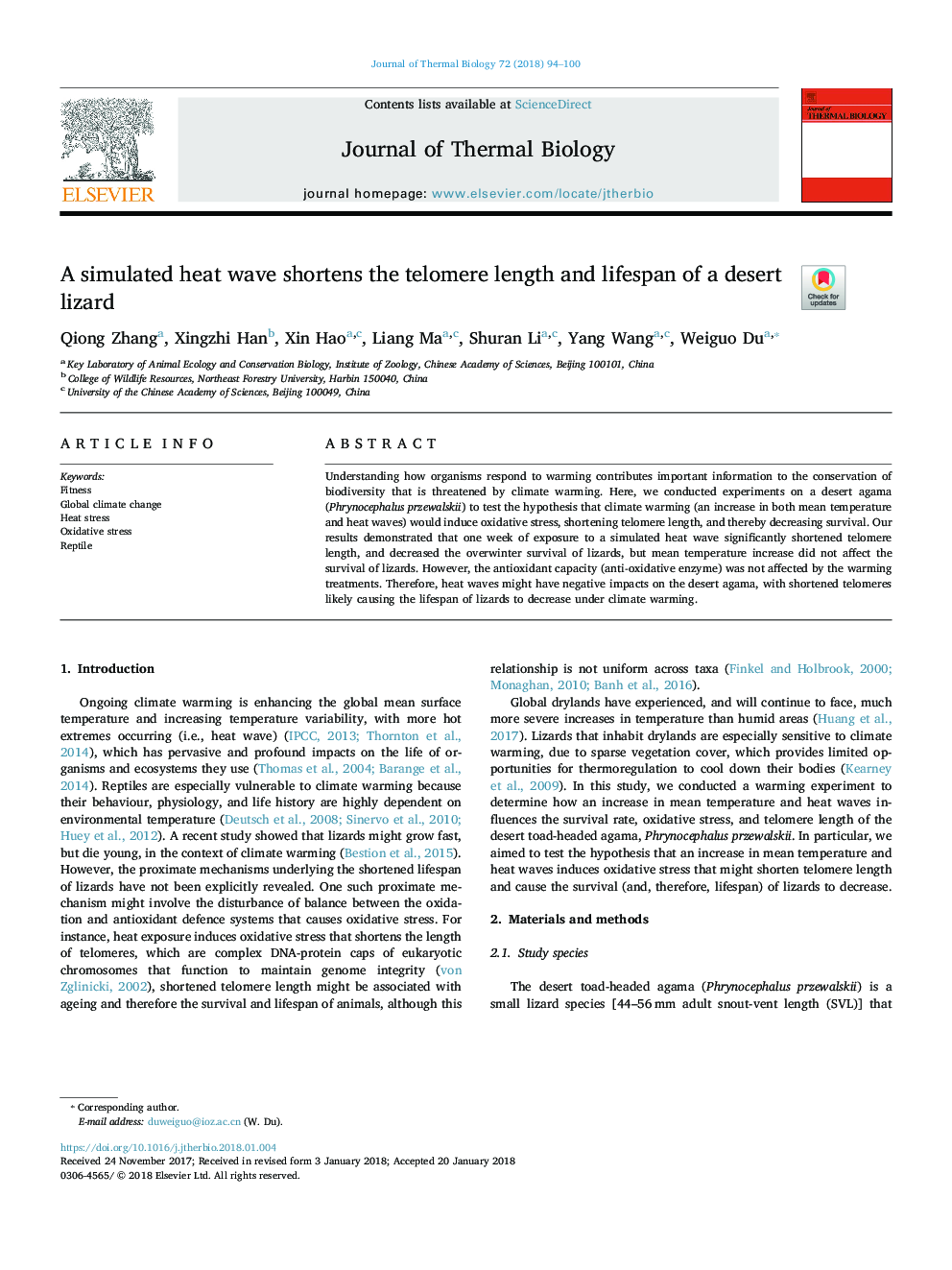| Article ID | Journal | Published Year | Pages | File Type |
|---|---|---|---|---|
| 8650103 | Journal of Thermal Biology | 2018 | 7 Pages |
Abstract
Understanding how organisms respond to warming contributes important information to the conservation of biodiversity that is threatened by climate warming. Here, we conducted experiments on a desert agama (Phrynocephalus przewalskii) to test the hypothesis that climate warming (an increase in both mean temperature and heat waves) would induce oxidative stress, shortening telomere length, and thereby decreasing survival. Our results demonstrated that one week of exposure to a simulated heat wave significantly shortened telomere length, and decreased the overwinter survival of lizards, but mean temperature increase did not affect the survival of lizards. However, the antioxidant capacity (anti-oxidative enzyme) was not affected by the warming treatments. Therefore, heat waves might have negative impacts on the desert agama, with shortened telomeres likely causing the lifespan of lizards to decrease under climate warming.
Related Topics
Life Sciences
Agricultural and Biological Sciences
Agricultural and Biological Sciences (General)
Authors
Qiong Zhang, Xingzhi Han, Xin Hao, Liang Ma, Shuran Li, Yang Wang, Weiguo Du,
